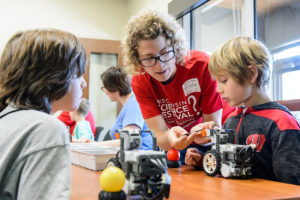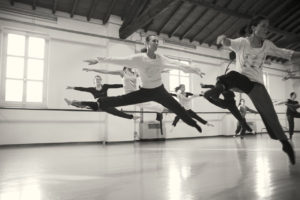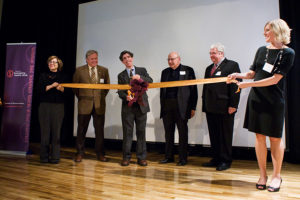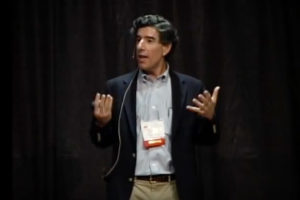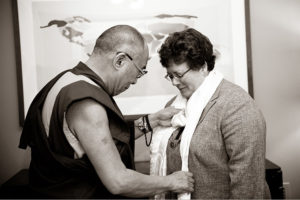The fortunate among us have experienced some perfect conversations.
They can begin as an innocent exchange, ordinary, unremarkable. They then catch fire, sparking into unexpected directions, feeding on the energy and new ideas and connections being discussed. The conversations get big. And memorable. The Big Learning Event (BLE), to be held June 7-8 at Union South, is designed to produce perfect conversations and powerful ideas.
BLE turns the traditional academic conference model on its head. Six leading thinkers from disparate disciplines will share what’s on their minds and together, with the other speakers and the event attendees, identify common themes among the disciplines and discuss how these issues might affect how we work and adapt to change. BLE organizers believe that we can develop game-changing ideas to help take the campus forward by getting out of our narrow silos to have cross-disciplinary conversations.
“The Big Learning Event has big speakers, big ideas and, in many ways, big opportunities,” says Don Schutt, director of the Office of Human Resource Development and member of the event’s design team. “We thought, what if we brought together some phenomenal minds to think about our current-day issues? And instead of anticipating what the audience might want to know from the speakers, to instead ask the speakers what’s on their minds, and then translate that to the needs of UW–Madison.”
To get the conversations rolling, each speaker will give a brief talk, which will be followed by a moderated group conversation. Then, each speaker will lead an extended breakout session to explore ideas in depth. And all along the way, event attendees will have the chance to ask questions and help guide the conversations.
Individually, the featured speakers participating are remarkable. When the speakers and their breakout sessions are taken as a group, it’s a showstopper.
Mihaly Csikszentmihalyi is a psychologist best known for the idea of flow and creativity. His breakout will examine “Joyful Learning: The Challenge to Education.”
UW–Madison’s Richard J. Davidson is famous for his work in happiness and mind-body connections. His talk title is “Change Your Brain by Transforming Your Mind.”
Derrick Pitts might be America’s best-known astronomer. Devoted to science education, he will discuss “Science Literacy vs. Science Denialism.”
Meg Wheatley is an expert in how we learn in organizations and groups. She will explore these ideas in “People Who Persevere.”
Nathan Wolfe is a virus hunter, working to forecast and contain new plagues. Wolfe will discuss his work in “Virus Hunting: Identifying Tomorrow’s Pandemic Today.”
Lily Yeh uses art to transform lives and communities around the world. Her talk title is “From Abandonment to Enchantment, Awakening Creativity from Within.”
BLE also shakes up the traditional conference model by offering five pre-event study groups organized around theme areas from the speakers. The study groups will be facilitated by campus talent and will include readings, talks and other learning opportunities.
Teri Balser, UW–Madison associate professor of soil science, director of the Institute for Cross-College Biology Education and 2011 U.S. Professor of the Year, is helping to facilitate a pre-event study group that will explore themes raised by Wheatley and Yeh in “Fostering Connections: Building Community and Engagement in Work.”
As an educator, Balser sees the potential and possibilities of BLE. “We often talk about the value of life-long learning and continuing education and the BLE is not just for campus, it’s for everybody. It demonstrates the Wisconsin Idea in an intelligent way,” says Balser. “I couldn’t pass up the chance to be part of the big ideas.”
And as an educator she is also quick to see the value in participating in the pre-event study groups. “My past experiences with study groups have given me a much deeper knowledge of the topic or subject. I am prepared for the event, I certainly read more than I would on my own and I get to hear other ideas. This leads to a wider and deeper knowledge and probing questions that really challenge the speaker,” says Balser.
The other study group topics and speaker themes are: “The Role of Art as a Tool for Social Action,” (Wheatley, Yeh); “Frontiers of Medical Research: Disease, Global Health, and Related Areas,” (Wolfe); “Optimizing Performance and Life Satisfaction Through Enhancing Your Understanding of Flow and Happiness Psychology,” (Csikszentmihalyi, Davidson); and “Reaching for the Stars: What is the Next Frontier?” (Pitts). The pre-event study groups are free and open to the public, but registration is required.
– Gwen Evans
